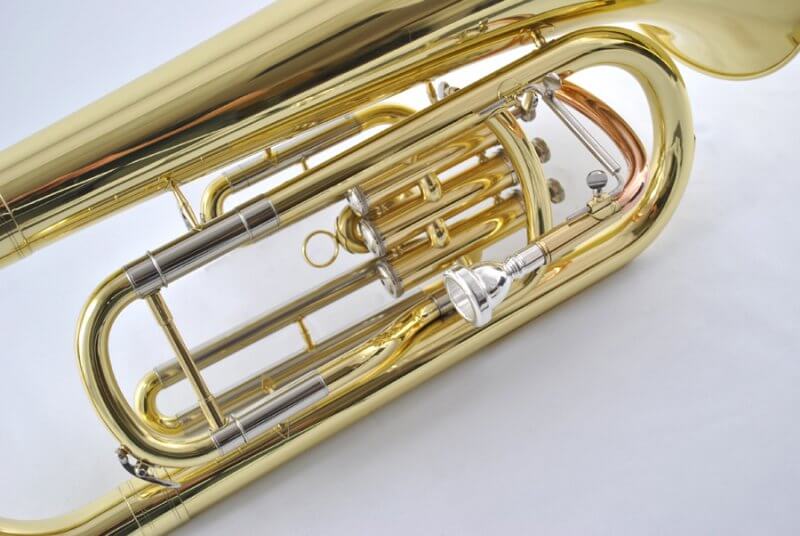Results
-
 £50.90
£50.90AULD LANG SYNE (Vocal Solo (Baritone) with Brass Band) - Lorriman, Howard
Grade: Easy.
Estimated dispatch 7-14 working days
-
 £50.90
£50.90CORE 'NGRATO (Vocal Solo (Baritone) with Brass Band) - Cardillo, Salvatore - Lorriman, Howard
Grade: Easy/Medium.
Estimated dispatch 7-14 working days
-
 £54.20
£54.20LARGO AL FACTOTUM (Vocal Solo (Baritone) with Brass Band) - Lorriman, Howard
From The Barber of Seville. Grade: Medium.
Estimated dispatch 7-14 working days
-
 £50.90
£50.90RAINY DAYS AND MONDAYS (Baritone/Euphonium Solo with Brass Band) - Fernie, Alan
Grade: Medium.
Estimated dispatch 7-14 working days
-
 £50.90
£50.90SPRIG OF THYME, The (Baritone/Euphonium Solo with Brass Band) - Smith, Sandy
Grade: Easy.
Estimated dispatch 7-14 working days
-
 £54.20
£54.20TOREADORS' SONG (Vocal Solo (Baritone) with Brass Band) - Bizet, Georges - Lorriman, Howard
From Carmen. Grade: Medium.
Estimated dispatch 7-14 working days
-
 £29.50
£29.50Appassionata - Richard Rock
From the pen of Richard Rock comes a solo that should belong in every bands library. The Baritone has long been the most underated instrument of the Brass Band movement, but on hearing this work, all that could change. "Appassionata" is a simply gorgeous melodic work that can show off the Baritone instrument in a light not often seen. With the parts not too demanding either, this really is a must for all Baritone players.
In Stock: Estimated dispatch 1-3 working days
-
£29.50
Brass Monkey's Soloists - Martin Geovess
The main goal of any training band is to eventually see the players progress through the ranks and ultimately, be placed within the senior band. This latest instalment of the Brass Monkeys series, aims to bring that goal much closer and boost the confidence of the learners. The 'Brass Monkey's Soloists' publication features four specially composed works which allows the young soloists to perform a feature piece with accompaniment from the senior band. There is no bigger confidence boost than playing up alongside the 'big band'. The specially tailored solo parts are written at an advanced training band level, whilst the senior band parts will keep them busy as they aid the future generations to come. This publication features...THE OLD 'F' AND 'C' - (Solo for Cornet / Flugel)LAZY DAYS - (Solo for Trombone)DANNI'S SONG - (Solo for Tenor Horn)THE SHOWMAN - (Solo for Euphonium / Baritone / Xylophone)
In Stock: Estimated dispatch 1-3 working days
-
£24.50
Farondole - Bizet - Alan Beaumont
This famous movement from Bizet's highly popular suite has long been a favorite with brass bands and their audiences alike. This new arrangement now includes better percussion parts (including timpani) and some lovely grace notes for Baritone and Repiano. The Cornet section is also arranged unusually as it is written for 3 players to play the Repiano part and 2 players to play the Solo Cornet line. A wonderful effect.
In Stock: Estimated dispatch 1-3 working days
-
 £15.00
£15.00My Love is Like a Red, Red Rose - Helen Douthwaite
Robert Burns' beautiful melody is brought to life as a euphonium solo with brass band accompaniment in this simple, yet highly effective, arrangement by Helen Douthwaite.Originally arranged by Helen for the Kirkintilloch Youth Band, the piece not only features the soloist with a carefully crafted, accessible solo line, but also enables the rest of the band to shine through the tutti elements.Set includes score and parts for:Solo CornetRepiano Cornet2nd Cornet3rd CornetFlugelhornSolo Eb Tenor Horn1st Eb Tenor Horn2nd Eb Tenor Horn1st Baritone2nd Baritone1st Trombone2nd TromboneBass TromboneEuphoniumEb BassBb Bass (optional)GlockenspielPercussionAdditional world parts also provided include F Horn 1/2/3, Baritone 1/2 in bass clef, Trombone 1/2 in bass clef, Euphonium in bass clef, Tuba.
In Stock: Estimated dispatch 3-5 working days
